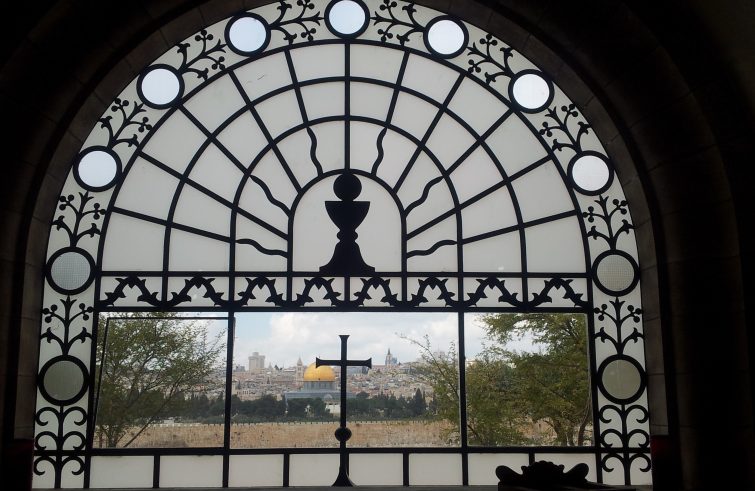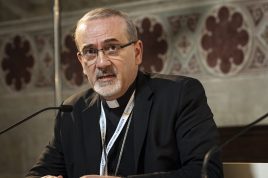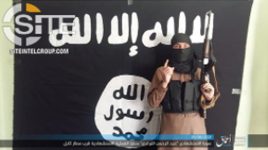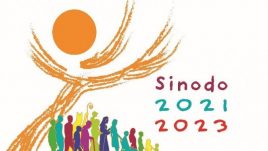
On 14 September 2012 – Feast of the Exaltation of the Holy Cross -, Pope Benedict XVI signed his Post-Synodal Apostolic Exhortation on the Church in the Middle East, “Ecclesia in Medio Oriente” in Harissa (Lebanon), marking the first step of his journey to the Land of the Cedars. The document was the product of the Special Assembly of the Synod of Bishops for the Middle East which took place in Rome October 10 to 24, 2010, entitled “The Catholic Church in the Middle East: Communion and Witness – Now the company of those who believed were of one heart and soul.” The text is divided into three parts: the first examines the synodal theme in the Middle East’s “complicated” social and ecclesial context. The second part addresses the dimension of communion in the Catholic Church, while the third provides “key insights” for resuming evangelization in the Holy Land. Ten years after its promulgation, what is the legacy of this Exhortation? SIR posed this question to the Latin Patriarch of Jerusalem, Pierbattista Pizzaballa, who brought his contribution to the 2010 Synod for the Middle East in his capacity as Custos of the Holy Land.
 Re-reading the Exhortation. “A wide range of subjects were discussed in the 2010 Synod, referred to in the ensuing Exhortation”, recalls the Patriarch. “They ranged from interreligious dialogue to ecumenism, from citizenship to political participation, including positive secularism, religious education and witness. The legacy for today: First of all, it should be noted that this past decade has witnessed ISIS massacres , on the one hand, but it also saw the birth of the ”Document on Human Fraternity for World Peace and Living Together” signed (on February 4, 2019) by Pope Francis and the Grand Imam of Al-Azhar Ahmad Al-Tayyib in Abu Dhabi. Not to mention the pandemic. All these issues deserve renewed reflection today. A decade ago there was a positive perspective of growth, of change. Let us remember, as an example, the Arab Spring. Ten years have passed and these themes are still of central importance and deserve to be further explored.” Not without difficulties, for Pizzaballa: “The theme of interfaith dialogue in Syria and Iraq, after ISIS and Abu Dhabi, requires making a substantial synthesis of what we have experienced. That is something we have not done yet and should do. One of the commitments of this pastoral year will be to re-read this Exhortation against the backdrop of political, social and ecclesial developments. It has been a dramatic journey but a significant one too.”
Re-reading the Exhortation. “A wide range of subjects were discussed in the 2010 Synod, referred to in the ensuing Exhortation”, recalls the Patriarch. “They ranged from interreligious dialogue to ecumenism, from citizenship to political participation, including positive secularism, religious education and witness. The legacy for today: First of all, it should be noted that this past decade has witnessed ISIS massacres , on the one hand, but it also saw the birth of the ”Document on Human Fraternity for World Peace and Living Together” signed (on February 4, 2019) by Pope Francis and the Grand Imam of Al-Azhar Ahmad Al-Tayyib in Abu Dhabi. Not to mention the pandemic. All these issues deserve renewed reflection today. A decade ago there was a positive perspective of growth, of change. Let us remember, as an example, the Arab Spring. Ten years have passed and these themes are still of central importance and deserve to be further explored.” Not without difficulties, for Pizzaballa: “The theme of interfaith dialogue in Syria and Iraq, after ISIS and Abu Dhabi, requires making a substantial synthesis of what we have experienced. That is something we have not done yet and should do. One of the commitments of this pastoral year will be to re-read this Exhortation against the backdrop of political, social and ecclesial developments. It has been a dramatic journey but a significant one too.”
 The challenge. There are lights that illuminate this path. For the Latin Patriarch, “in contexts such as the ones scarred by ISIS, by Christian exodus – a frequently mentioned issue in the Exhortation – hope, which is a fruit of faith, must be our companion. Faith is not only a matter of belief, it is also a way of experiencing life, of understanding life. If you want something, you also want to accomplish it.” Consequently, “the first challenge” for Pizzaballa “is to recover our fundamental relationship with the faith – a new way of experiencing a Middle East that has undergone significant changes over the past 10 years. Moreover, the great ecclesial institutions – in the Middle East just like in other parts of the world – present signs of crisis. However, if we turn our gaze to the local context, to the ecclesial realities of the region, which are fewer in number compared to the past, we will see great commitment and dedication – which sometimes results in misunderstanding the institution – and a desire to get involved. The responsibility of the shepherds is to provide guidance for these communities.” The Synodal path undertaken by the Church in the Holy Land, as have done the Churches in the world, “is bringing to the fore a yearning to contribute on the part of the faithful.”
The challenge. There are lights that illuminate this path. For the Latin Patriarch, “in contexts such as the ones scarred by ISIS, by Christian exodus – a frequently mentioned issue in the Exhortation – hope, which is a fruit of faith, must be our companion. Faith is not only a matter of belief, it is also a way of experiencing life, of understanding life. If you want something, you also want to accomplish it.” Consequently, “the first challenge” for Pizzaballa “is to recover our fundamental relationship with the faith – a new way of experiencing a Middle East that has undergone significant changes over the past 10 years. Moreover, the great ecclesial institutions – in the Middle East just like in other parts of the world – present signs of crisis. However, if we turn our gaze to the local context, to the ecclesial realities of the region, which are fewer in number compared to the past, we will see great commitment and dedication – which sometimes results in misunderstanding the institution – and a desire to get involved. The responsibility of the shepherds is to provide guidance for these communities.” The Synodal path undertaken by the Church in the Holy Land, as have done the Churches in the world, “is bringing to the fore a yearning to contribute on the part of the faithful.”
 Exhortation and Synodal journey. Nevertheless, cautions the Patriarch, “we should not expect epoch-making changes from the Synodal process. In fact, it should be viewed in terms of ’tilling the soil’. We lived through dramatic years, when everything came to a standstill. And the past generation should also step aside. For us, the Synodal journey must be a time to become aware of the most significant challenges facing the younger generation, for extending our gaze in all directions to see who one can work with, to understand the issues and know where we stand.” “As we face this challenge, we are sustained by the steadfast faith of the Christians in the Holy Land. And although they do not know it in depth, they are proud of it. Our faithful,” he concludes, “have a strong sense of belonging that needs to be developed. Christian identity is much more fragile in Europe.”
Exhortation and Synodal journey. Nevertheless, cautions the Patriarch, “we should not expect epoch-making changes from the Synodal process. In fact, it should be viewed in terms of ’tilling the soil’. We lived through dramatic years, when everything came to a standstill. And the past generation should also step aside. For us, the Synodal journey must be a time to become aware of the most significant challenges facing the younger generation, for extending our gaze in all directions to see who one can work with, to understand the issues and know where we stand.” “As we face this challenge, we are sustained by the steadfast faith of the Christians in the Holy Land. And although they do not know it in depth, they are proud of it. Our faithful,” he concludes, “have a strong sense of belonging that needs to be developed. Christian identity is much more fragile in Europe.”










